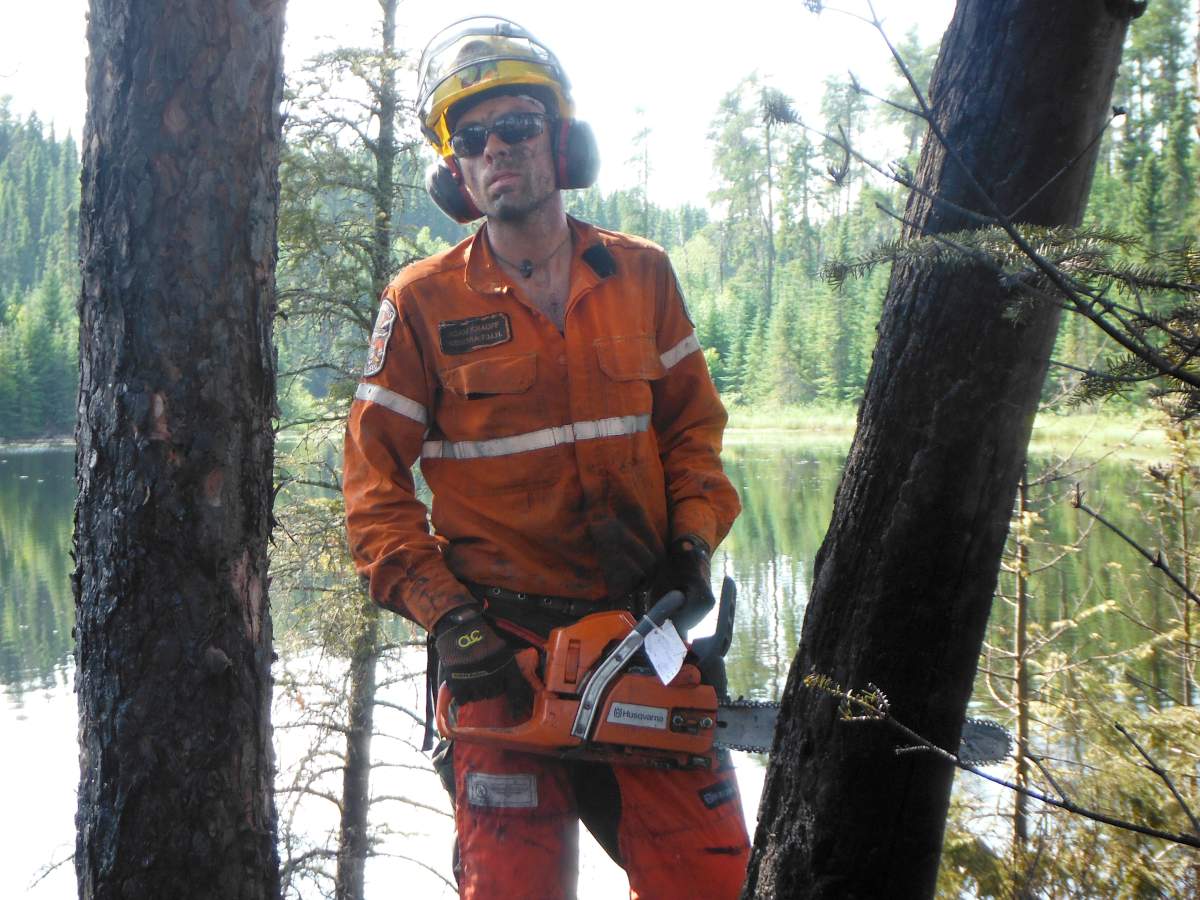An Ontario firefighter says his rights were violated after his employer refused to provide sufficient vegan food while he was battling forest fires in B.C. in 2017.

Adam Knauff said while working near William’s Lake, B.C., his employer, Ontario’s Ministry of Natural Resources and Forestry, failed to supply him with enough vegan food to sustain him during the long work hours fighting forest fires. He also says he was suspended as a result of his complaints.
Knauff says he is an “ethical vegan,” meaning it’s not just about the diet, but also a moral belief not to consume or use animal products. He says access to vegan food is a human right — one that his employer violated.
He’s now taken his complaint to the Human Rights Tribunal of Ontario.
Experts say he could make a strong case.
“An ethical vegan or vegetarian are examples of beliefs that could be equivalent to a religion,” said Bruce Ryder, a law professor at York University. “It’s about an ethical worldview, not just a diet.”
“Mr. Knauff is an ethical vegan — it’s fundamental to who he is and his way of being in the world. So to not have his practice accommodated is similar to a religious person, the need to pray not being accommodated at the workplace.”
He said the human rights case centres on whether veganism is a form of creed and whether ethical veganism falls into the category “non-religious beliefs.”

Get daily National news
WATCH: More people are turning to plant-based diets

What is creed?
Historically, creed has been a synonym for religion in Ontario, Ryder said. However, since the 1960s, (when it was first established) there has been an evolution in social attitudes.
The term has now evolved to reflect changing societal norms. In 2015, the Ontario Human Rights Commission (OHRC) updated the definition of creed to include non-religious beliefs.
READ MORE: Most vegans and vegetarians in Canada under age 35, survey says
“Creed may also include non-religious belief systems that, like religion, substantially influence a person’s identity, worldview and way of life,” the OHRC states.
- 3 in 10 Albertans would vote for independence — but only half committed to separating: poll
- Much of Canada faces extreme cold, heavy snow in latest winter blast
- Pimicikamak Cree Nation to evacuate 79 more homes after military assessment
- China’s envoy says Beijing, Ottawa ‘eye to eye’ on supporting Greenland
Characteristics of creed include a belief that relates to the conception of the “divine,” Ryder said. The belief needs to be sincere, integrally linked to a person’s identity, has spiritual fulfilment and addresses questions of human existence, according to the OHRC.
To fall under creed, there needs to be an “element” of religious belief, the OHRC states, such as Indigenous spirituality or atheist beliefs.
Is veganism a form of creed?
When the OHRC updated the definition of creed to include non-religious beliefs, it stated that it did not explicitly cover ethical veganism.
“The policy does not say one way or the other whether ethical veganism is a creed. Indeed, it is not the OHRC’s role to determine whether or not a certain belief is a creed. Specific facts and context are needed for those kinds of determinations to be made. Ultimately, courts or a tribunal will make those kinds of decisions,” the OHRC stated.
However, because the term is not frozen in time, it could extend to ethical vegans, according to Michael Lynk, an associate professor at the faculty of law at Western University.
He said Knauff’s argument may actually fall into the definition.
“I would say that he has a good argument to say the current definition of creed is broad enough and consistent enough with human rights to include veganism as an ethical system of belief,” Lynk said.
“Veganism could be a human rights issue.”
He said if the complaint does head to Human Rights Tribunal of Ontario (and it’s not settled outside of the tribunal), Knauff will have to prove two factors. He will have to show that veganism is captured within the definition of creed and then show he was discriminated against based on this.
WATCH: How to survive on a vegan diet

Both Lynk and Ryder agree that if the case is seen as discriminatory, this will act as a huge precedent, not just in Ontario, but potentially other provinces as well.
“It opens up the doors to say that hospitals and correction facilities would have to provide vegan food,” Lynk said.
Ryder said it’s important to have this discussion on whether creed extends to veganism, as the case could also act as a precedent in other jurisdictions.
“Ontario uses the term creed, but it’s different in each jurisdiction. Other provinces use religion. So this could be a political opinion in other provinces or fall into another human rights category.”











Comments